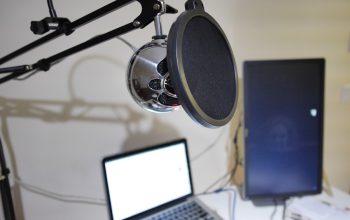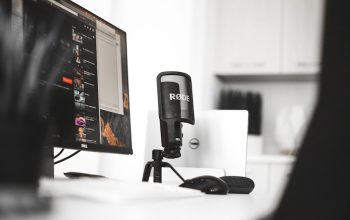Podcasts have emerged as a powerful tool for enhancing listening comprehension skills, particularly in language learning contexts. One of the primary advantages of using podcasts is their accessibility. With a plethora of topics available, learners can select content that genuinely interests them, which can significantly boost motivation and engagement.
This intrinsic motivation is crucial, as it encourages learners to listen more frequently and attentively. Furthermore, podcasts often feature native speakers, providing learners with exposure to authentic language use, including colloquialisms, idiomatic expressions, and varied accents. This exposure helps learners develop a more nuanced understanding of the language as it is spoken in real-life situations.
Another significant benefit of podcasts is the flexibility they offer. Unlike traditional classroom settings, where listening exercises may be limited to specific contexts or materials, podcasts can be consumed anytime and anywhere. This flexibility allows learners to integrate listening practice into their daily routines, whether during commutes, workouts, or household chores.
Additionally, many podcasts are designed with varying levels of difficulty, catering to a wide range of proficiency levels. This means that learners can gradually increase the complexity of the content they engage with, thereby fostering continuous improvement in their listening skills.
Key Takeaways
- Podcasts provide a convenient and enjoyable way to improve listening comprehension skills in a foreign language.
- When choosing podcasts for listening comprehension practice, consider the language, speed, and topic to ensure they align with your learning goals and interests.
- Active listening strategies such as taking notes, summarizing, and predicting can enhance comprehension and retention while using podcasts.
- Podcasts can help improve vocabulary and pronunciation through exposure to natural language usage and accents.
- Incorporating podcasts into your daily routine can provide consistent practice and make language learning more enjoyable and sustainable.
How to Choose the Right Podcasts for Listening Comprehension Practice
Selecting the appropriate podcasts is crucial for maximizing the benefits of listening comprehension practice. First and foremost, learners should consider their current proficiency level. Beginners may find it beneficial to start with podcasts specifically designed for language learners, which often feature slower speech and clearer pronunciation.
For instance, podcasts like “Coffee Break Languages” or “EnglishClass101” provide structured lessons that cater to various levels, making them ideal for those just starting their language journey. In addition to proficiency level, learners should also take into account their personal interests and goals. Engaging with content that resonates with them not only makes the learning process more enjoyable but also enhances retention and comprehension.
For example, a learner interested in technology might choose podcasts like “Reply All” or “The Vergecast,” while someone passionate about history might opt for “Hardcore History.” By aligning podcast choices with personal interests, learners are more likely to remain engaged and motivated throughout their listening practice.
Strategies for Active Listening while Using Podcasts

Active listening is a critical component of effective language learning, and there are several strategies that learners can employ to enhance their listening comprehension while engaging with podcasts. One effective technique is to take notes while listening. This practice encourages learners to focus on key points and main ideas rather than passively absorbing information.
By jotting down important details or unfamiliar vocabulary, learners can reinforce their understanding and create a reference for later review. Another strategy involves pausing the podcast at regular intervals to reflect on what has been heard. This allows learners to process the information more thoroughly and consider how it relates to their existing knowledge.
For instance, after listening to a segment about a specific cultural practice, a learner might pause to think about how it compares to their own culture or experiences. This reflective practice not only deepens comprehension but also fosters critical thinking skills, which are essential for language acquisition.
Using Podcasts to Improve Vocabulary and Pronunciation
| Podcast Title | Number of Episodes | Duration of Each Episode | Frequency of Release | Target Audience |
|---|---|---|---|---|
| English Vocabulary Boost | 50 | 20 minutes | Weekly | Intermediate English learners |
| Pronunciation Power | 30 | 15 minutes | Bi-weekly | Beginner to Advanced English learners |
| Word Wizardry | 40 | 25 minutes | Monthly | Advanced English learners |
Podcasts serve as an excellent resource for expanding vocabulary and refining pronunciation skills. As learners listen to native speakers discuss various topics, they are exposed to new words and phrases in context. This contextual learning is particularly effective because it helps learners understand how vocabulary is used in real-life situations.
For example, a podcast episode discussing environmental issues may introduce terms like “sustainability,” “biodiversity,” and “carbon footprint.” By hearing these words used naturally within conversations, learners can better grasp their meanings and applications. To further enhance pronunciation skills, learners can engage in shadowing exercises while listening to podcasts. Shadowing involves repeating what is heard immediately after the speaker, mimicking their intonation, rhythm, and pronunciation.
This technique not only helps learners practice speaking but also reinforces their auditory processing skills. For instance, if a learner listens to a podcast episode featuring a discussion on current events, they can pause after each sentence and repeat it aloud, paying close attention to how the speaker articulates each word. Over time, this practice can lead to improved pronunciation and greater confidence in speaking.
Incorporating Podcasts into Daily Routine for Consistent Practice
Establishing a consistent routine for podcast listening is essential for maximizing the benefits of this learning tool. One effective approach is to designate specific times during the day for podcast consumption. For example, a learner might choose to listen during their morning commute or while preparing meals in the evening.
By integrating podcast listening into daily activities, learners can create a habit that promotes regular practice without requiring significant additional time commitment. Additionally, setting specific goals related to podcast listening can enhance motivation and accountability. For instance, a learner might aim to listen to one episode per day or complete a series within a certain timeframe.
Tracking progress through a journal or app can provide tangible evidence of improvement over time. This structured approach not only fosters consistency but also allows learners to celebrate milestones along their language-learning journey.
Overcoming Challenges and Frustrations in Listening Comprehension with Podcasts

While podcasts offer numerous benefits for improving listening comprehension, learners may encounter challenges that can lead to frustration. One common issue is difficulty understanding fast-paced speech or unfamiliar accents. To address this challenge, learners can utilize playback features available on most podcast platforms.
Slowing down the audio speed can make it easier to follow along and comprehend the content without feeling overwhelmed.
In such cases, it can be helpful for learners to supplement their podcast listening with additional resources.
For instance, they might look up unfamiliar words or phrases after an episode or seek out supplementary materials that provide background information on the topic discussed. This proactive approach not only aids comprehension but also enriches the overall learning experience by providing context and depth.
Tracking Progress and Setting Goals for Listening Comprehension Improvement
Monitoring progress is an essential aspect of any language-learning endeavor, and podcasts provide an excellent opportunity for learners to assess their development in listening comprehension. One effective method is to maintain a listening log where learners record episodes listened to, new vocabulary acquired, and personal reflections on comprehension levels. This log serves as both a motivational tool and a means of identifying areas that may require further attention.
Setting specific goals related to listening comprehension can also enhance focus and direction in learning. For example, a learner might aim to understand 80% of an episode without needing to pause or rewind by a certain date. Alternatively, they could set a goal to engage with content from different genres or topics each week to broaden their exposure to various language styles and registers.
By establishing clear objectives and tracking progress toward them, learners can cultivate a sense of achievement that fuels continued growth.
Supplementing Podcasts with Other Resources for Well-Rounded Language Learning
While podcasts are an invaluable resource for improving listening comprehension, they should be viewed as part of a broader language-learning strategy rather than a standalone solution. To achieve well-rounded language proficiency, learners should consider supplementing their podcast listening with other resources such as books, videos, or interactive language apps. For instance, reading books related to podcast topics can deepen understanding and reinforce vocabulary learned through listening.
Engaging in conversation with native speakers or participating in language exchange programs can also complement podcast use by providing opportunities for real-time practice and feedback. Language exchange platforms like Tandem or HelloTalk allow learners to connect with speakers of their target language who are eager to practice their own language skills in return. This interactive approach not only enhances speaking abilities but also reinforces listening comprehension through authentic dialogue.
By integrating podcasts into a comprehensive language-learning framework that includes diverse resources and practices, learners can maximize their potential for improvement in listening comprehension while enjoying the process of acquiring a new language.
If you are interested in improving your listening comprehension skills through podcasts, you may want to check out the article “Hello World” on the Education Podcast Network blog. This article discusses the benefits of using podcasts as a tool for language learning and provides tips for maximizing your listening experience. You can read the full article here.
FAQs
What is listening comprehension?
Listening comprehension is the ability to understand and interpret spoken language. It involves understanding the meaning, tone, and context of what is being said.
Why is listening comprehension important?
Listening comprehension is important for effective communication, learning, and overall language proficiency. It is a crucial skill for language acquisition and for understanding verbal instructions and information.
What are podcasts?
Podcasts are digital audio files that are available for streaming or download. They cover a wide range of topics and can be educational, entertaining, or informative. Listeners can access podcasts on various platforms and devices.
How can podcasts help improve listening comprehension?
Podcasts can help improve listening comprehension by providing exposure to natural spoken language, different accents, and various topics. They can also help listeners practice understanding context, tone, and nuances in language.
What are some tips for improving listening comprehension with podcasts?
Some tips for improving listening comprehension with podcasts include choosing topics of interest, listening actively, taking notes, and practicing listening to different accents and speech speeds. It’s also helpful to listen to the same podcast multiple times to reinforce understanding.
Are there specific podcasts designed for improving listening comprehension?
Yes, there are podcasts specifically designed for language learners to improve listening comprehension. These podcasts often include slower speech, clear enunciation, and explanations of vocabulary and idiomatic expressions.



